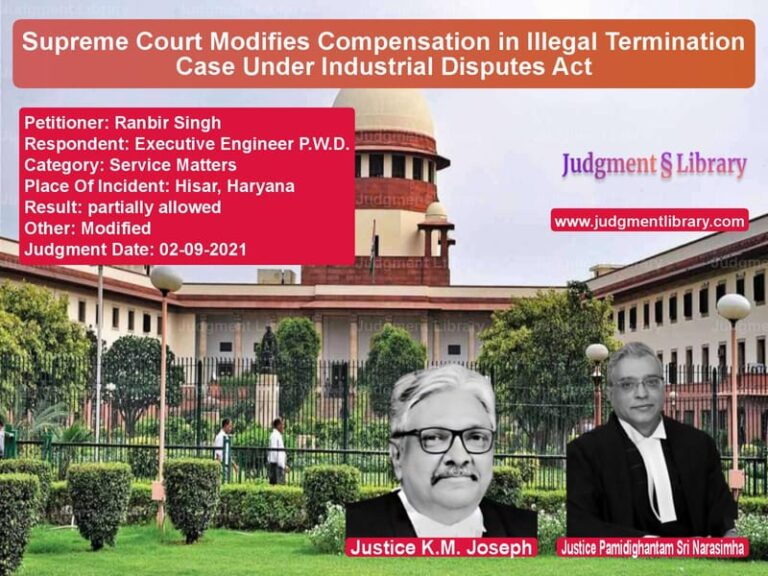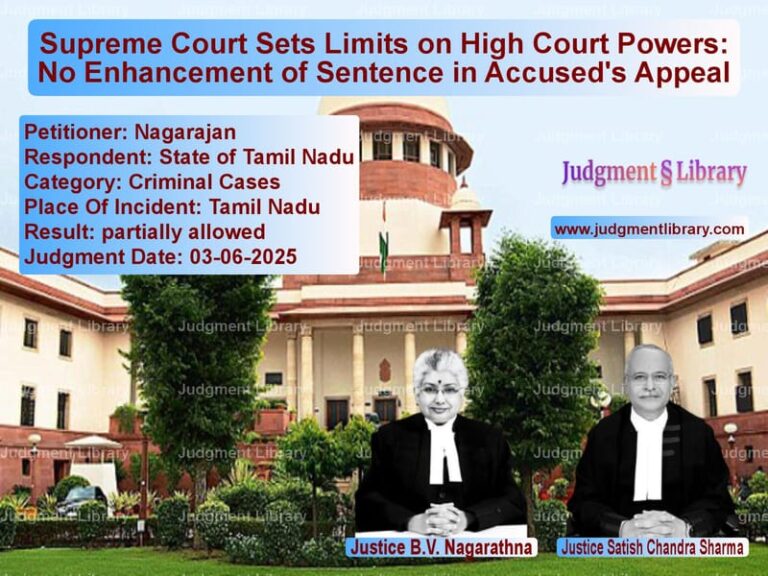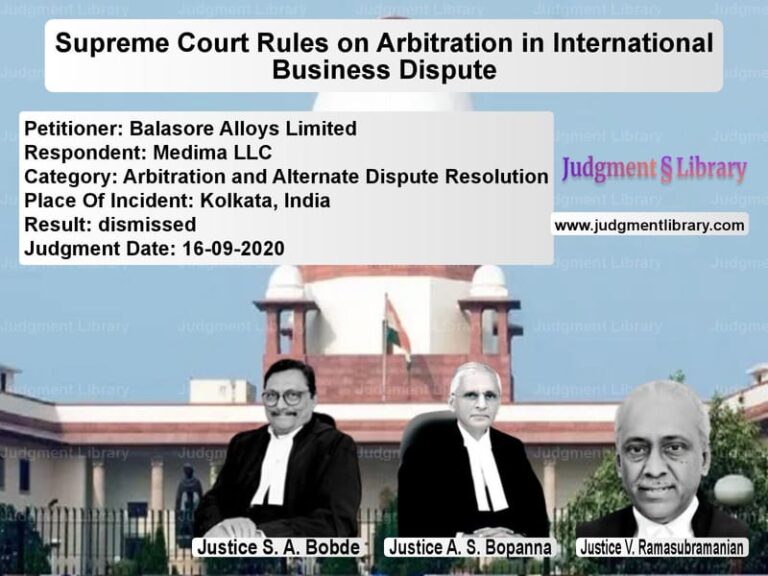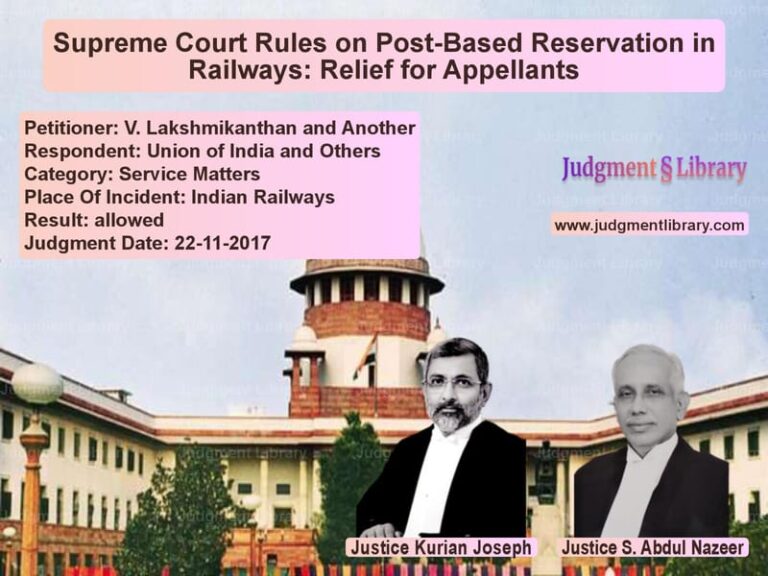Bangalore Development Authority Land Acquisition Case: Supreme Court Upholds Planned Development
The Supreme Court of India recently adjudicated a landmark case involving the Bangalore Development Authority (BDA) and landowners affected by a city development project. The case revolved around land acquisition for the Dr. K. Shivaram Karanth Layout, a planned residential and infrastructure development in Bangalore. The dispute emerged due to prolonged delays in the acquisition process, raising questions about procedural lapses and landowners’ rights. The Court’s judgment not only reaffirmed the importance of planned urban development but also addressed issues of administrative inefficiency and legal oversight.
Background of the Case
The BDA, as the town planning authority for Bangalore, is responsible for executing development schemes. Under the Bangalore Development Authority Act, 1976, the agency has the power to acquire land for city expansion and civic amenities. On December 30, 2008, BDA issued a notification under Section 17 of the BDA Act for acquiring land to establish the Dr. K. Shivaram Karanth Layout. The Government of Karnataka approved the scheme on December 3, 2008.
As per the plan, 45% of the acquired land was designated for civic amenities such as roads and playgrounds, while the remaining 55% was reserved for residential development. Landowners were offered the choice of either compensation under the Land Acquisition Act, 1894, or developed plots in return.
Legal Challenges and Court Proceedings
The BDA received numerous objections from landowners and stakeholders. The State Government later ordered the exclusion of 257 acres and 20 guntas from the acquisition process, which was followed by another decision to remove 446 acres and 7 guntas. These decisions prompted public outcry and legislative scrutiny, leading to government-ordered inquiries in 2012 and 2013.
Following these developments, landowners approached the Karnataka High Court, arguing that the prolonged delay in issuing final acquisition notifications deprived them of their rights. They contended that the BDA’s inaction meant the preliminary notification should be deemed lapsed. The High Court ruled in favor of the landowners, citing undue delay and lack of progress on the acquisition.
BDA’s Arguments Before the Supreme Court
The BDA, dissatisfied with the High Court’s ruling, appealed to the Supreme Court, presenting the following arguments:
- The BDA Act is a self-contained code for land acquisition and development, distinct from the Land Acquisition Act, 1894.
- The two-year time limit prescribed in the Land Acquisition Act does not apply to BDA acquisitions.
- The acquisition process was delayed due to a large number of objections and government-ordered inquiries.
- Planned urban development is a statutory mandate, and lapsing acquisition would hinder city infrastructure growth.
- The High Court overlooked the Supreme Court’s ruling in Offshore Holdings Pvt. Ltd. v. Bangalore Development Authority, which upheld BDA’s authority to acquire land without adhering to external time constraints.
Supreme Court’s Observations
The Supreme Court, comprising Justices Arun Mishra and S. Abdul Nazeer, ruled in favor of the BDA. The Court emphasized the critical need for planned urban expansion, dismissing the landowners’ claims that delays nullified the acquisition. The Court reaffirmed its earlier judgment in Offshore Holdings Pvt. Ltd., stating:
“The BDA Act is a self-contained code which provides for all the situations that may arise in planned development of an area including acquisition of land for that purpose. The scheme of the Act does not admit any necessity for reading the provisions of Sections 6 and 11A of the Land Acquisition Act, as part and parcel of the BDA Act.”
Impact of the Judgment
The Supreme Court’s decision has far-reaching implications for urban development and land acquisition policies:
- It upholds the BDA’s authority to proceed with acquisitions even if there are delays in finalizing notifications.
- It reinforces the importance of planned development in metropolitan areas.
- It highlights the necessity for administrative transparency to prevent political or bureaucratic interference in land acquisition.
Conclusion
This ruling affirms the Supreme Court’s commitment to ensuring that planned development is not hindered by procedural inefficiencies or legal ambiguities. By upholding the BDA’s acquisition process, the Court has reinforced the need for urban planning agencies to execute projects effectively while safeguarding landowners’ rights through fair compensation mechanisms. The judgment serves as a precedent for future land acquisition disputes, balancing development needs with legal scrutiny.
Petitioner Name: Bangalore Development Authority.Respondent Name: The State of Karnataka.Judgment By: Justice Arun Mishra, Justice S. Abdul Nazeer.Place Of Incident: Bangalore, Karnataka.Judgment Date: 03-08-2018.
Don’t miss out on the full details! Download the complete judgment in PDF format below and gain valuable insights instantly!
Download Judgment: Bangalore Developmen vs The State of Karnata Supreme Court of India Judgment Dated 03-08-2018.pdf
Direct Downlaod Judgment: Direct downlaod this Judgment
See all petitions in Property Disputes
See all petitions in Landlord-Tenant Disputes
See all petitions in Specific Performance
See all petitions in Judgment by Arun Mishra
See all petitions in Judgment by S. Abdul Nazeer
See all petitions in allowed
See all petitions in supreme court of India judgments August 2018
See all petitions in 2018 judgments
See all posts in Civil Cases Category
See all allowed petitions in Civil Cases Category
See all Dismissed petitions in Civil Cases Category
See all partially allowed petitions in Civil Cases Category







